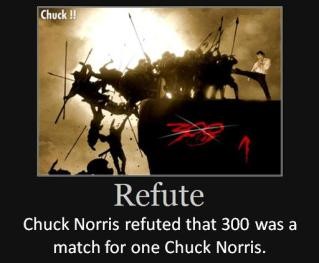
Like any other business, we never comment on individual commercial relationships, but our policy is absolutely clear.How have you refuted Oborne's allegations, Telegraph? I see no point by point rebuttal. Here, for example, is an example of refuting. It's me giving a Dan Hodges' piece a going over line-by-line. He offers an argument, I refute it with things like logic and evidence. What it does not mean is to deny or disagree. If one of the readers thinks I'm wasting my time in the Labour Party, I deny that is the case. It is only refuted (at least to my satisfaction) if I put forward a cogent, convincing response that grinds their argument down and proves it to be nothing more than a jumble of bruised and bloody words.
We aim to provide all our commercial partners with a range of advertising solutions, but the distinction between advertising and our award-winning editorial operation has always been fundamental to our business.
We utterly refute any allegation to the contrary.
What's this? I looked at the Oxford Dictionaries site ran by Oxford University Press (which is not the same as the OED), the screen filled with something else:
Refute (Synonyms)Since the sam hell when? I didn't get the memo when the meaning for refute suddenly annexed 'deny' or 'disagree with'. Anyone else spot it?
1.1 Prove that (someone) is wrong: his voice challenging his audience to rise and refute him
1.2 Deny or contradict (a statement or accusation): a spokesman totally refuted the allegation of bias
I haven't had the chance for an in-depth investigation, it's 23:15 hours for heaven's sake, but I have been probing the Daily Mail website in the hope it might be useful for once. And so it has. Near the bottom of the archive there are three pieces of interest. In Jacko speaks out on charges (November 24th, 2003), the paper writes "The Thriller star released a statement on a website set up to refute the allegations, which are believed to come from a 12 or 13-year-old cancer sufferer.". I'll go with that. The late Michael Jackson may or may not be guilty of heinous crimes, but getting the usage of refute right wasn't one of them. Similarly, in Rail union anger over track error (October 23rd, 2003) they write "The engineering firm strenuously denied allegations of impropriety and said it would strongly refute any allegations that documentation had been falsified." Bang on.
Then there is this. In Blair: I Did Not Mislead MPs (dated July 8th, 2003), a report about the Iraq war fallout, the Mail writes "Giving evidence to the House of Commons liaison committee, Mr Blair was asked about allegations that the House had been deliberately misled. Mr Blair responded: "Obviously I refute that entirely.""
Why am I not surprised that New Labour Newspeak is a key person of interest in the investigation? The MO fits perfectly. Take 'refute' and drop it liberally into party political discourse whenever 'disagree' or 'deny' would be the appropriate word, and you have a line repeated over the course of the subsequent news cycle. Saying you "refute any allegations", implies you have indeed made a refutation, albeit not in the footage employed in reports. As most people hold with the "classical" definition of refute, on the surface it appears that Blair - or any other agency uttering the corruption of the word - have sallied forth a rebuttal when nothing of the sort has occurred. It conjures up the existence of an absent support and absolves them from having to produce a real refutation. It's a sad, cynical way of trying to bend perception and reception through its deliberate misuse. It's semantic trickery, pure and simple.
That may or may not be the root of the decoupling of refute from refutation, but regardless of how often it is deployed its sounds incredibly jarring and clumsy. Keep 'em peeled, because when someone is claiming to 'refute' something, chances are they haven't.
3 comments:
Reflects usage; it might be by the powerful now, but soon..?
Misusing 'refute' for 'rebut' or 'deny' is so old an offender that it's in at least the second edition (1968) of Fowler's Modern English Usage.
So this allegation against New Labour stands refuted.
Thank you Ken for ruining my weekend ;)
Post a Comment